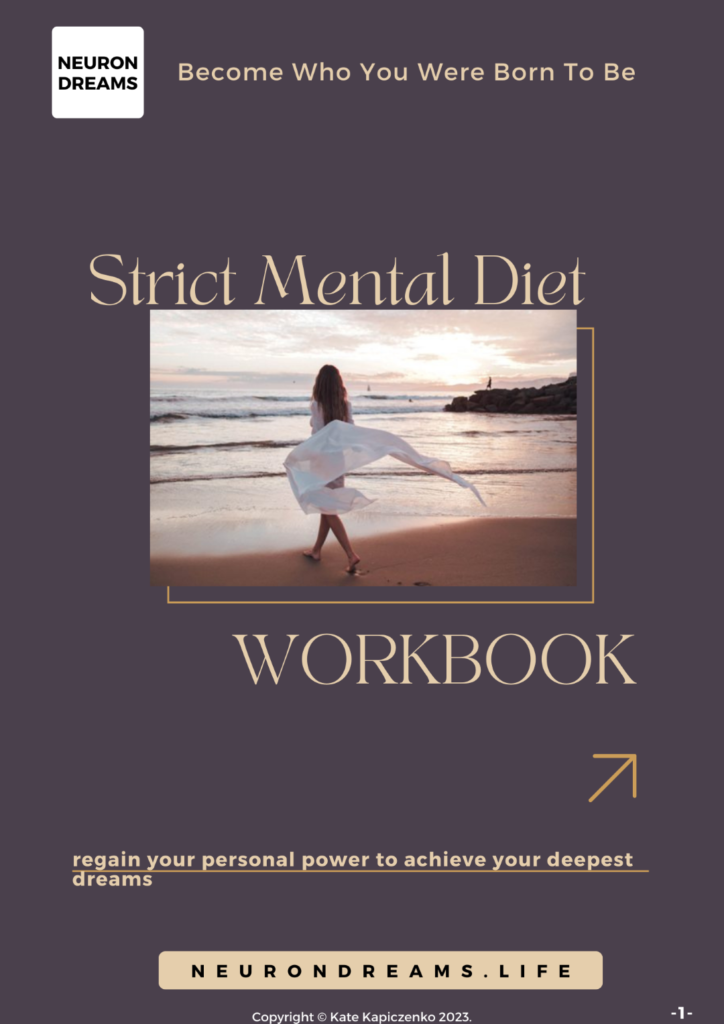“You will not be punished for your anger, you will be punished by your anger.” – Buddha
Anger Is An Emotion

Anger is a natural human emotion and like any other emotions serve a particular purpose. Whether is a call for making a decision, motivation to take an action or an alert to the danger, it cannot be ignored or avoided. Besides, every time we try to escape from difficult or unpleasant emotions we become trapped and anger is no exception to this rule. Furthermore, if we continue to fight with difficult emotions rather than acknowledge and accept them we will far less likely to get stuck in a vicious cycle of irrational thinking. Not to mention that any attempt to change or fix immediately a particular emotion only increases its intensity. And in consequence, the situation becomes really difficult to bear. Which is exactly what we want to avoid dealing with difficult and negative emotions.
As I mentioned earlier, emotions are natural phenomena of human nature that serve a wide range of purposes. And even if it’s hard to believe sometimes none of these purposes are meant to hurt you. But, if we want to truly understand the function and meaning of our emotions we need to adopt a mindful approach. Trust me, it’s the best way to avoid the burn of acting out during an emotional upsurge. Besides, mindfulness techniques are meant to teach us how to acknowledge, accept and deal with our emotions in a healthy way, especially with the negative ones.
Well undeniably, mindfulness is a key to understand the purpose of certain emotional states of mind in certain situations. Furthermore, is the best way to start consciously respond and stop emotionally reacting to the situation or person that causes us to feel in a particular way.
Sure, learning to understand and process emotions in a healthy way is not an easy task. No one’s questioning that. In fact, it takes time and practice but it’s worth the effort. Because once you’ve learned it you will be able to control your emotions and act stable even in extremely stressful and difficult situations. Besides, acting impulsively can lead to serious consequences, bad decisions, and dangerous repercussions. And correct me if I am wrong, but there is nothing more frustrating than when you feel guilty or remorseful after acting impulsively or taking an emotional decision.
So next time while experiencing an intense wave of energy rising up in the body in response to certain circumstances wait, acknowledge and accept your emotions without any judgment and then respond to the situation or person you have to deal with. Always choose to consciously respond not to emotionally react and you will avoid feeling guilty, remorseful or ashamed afterward.
Anger-Related Health Issues
1.Immune system
- Weaknesses immune system
- Increases inflammation in the body
2.Cardiovascular system
- High blood pressure
- Stroke
- Heart attack
- Raise blood glucose level
3.Digestive system
- Digestive issues
- Slower metabolism
- Stomach ulcers
- IBS
4.Hormonal system
- Causes thyroid problems
- Suppresses the reproductive system
5.Body
- Headaches & Migraines
- Chronic fatigue
- Chronic pain
- Joint pain
- Insomnia
- Increases risk of certain cancers
- Fibromyalgia
- Asthma
- Lungs problems
6.Mental health
- Depression
- Anxiety
- Panic attacks
7.Skin problems
- Eczema
- Acne
Understanding Different Types Of Anger

“Holding onto anger is like drinking poison and expecting the other person to die.” – Buddha
It’s important to understand that anger has a biological survival mechanism built into it which aims to protect us and warn us about the threat not to harm us in any way. Whether the perceived assault is real, irrational or imaginary the truth is that anger is a primitive defense mechanism that is meant to keep us safe. If you are wondering how you can tell what is the purpose of your anger, here are some questions that can help you to clarify your situation.
- What really happened?
- What is happening within my body?
- Why I feel angry?
- Is this anger righteous or toxic?
- Besides anger what else might I be feeling?
- How these feelings affect me?
- How can I overcome this anger in a healthy and mindful way?
Find the right answers and choose to consciously respond not to emotionally react. Always. And see what happens next. But remember don’t rush. Take some time and analyze carefully how you feel and what caused you this particular emotional state of mind. Find the primary cause of your anger and then discover what caused the activation of the defense mechanism.
And here again, ask yourself some questions and find out what are the primary causes of your anger.
- Did someone hurt you?
- Are you frustrated because someone disrespected you?
- Are you disappointed because things didn’t work out as planned?
- Are you upset because you’ve been misunderstood?
As you can see there are many different primary causes of anger. Furthermore, any of them is quite legitimate. However, the way you chose to behave may not be legitimate. It depends on your understanding of the situation and the type of anger you are experiencing in a certain moment. Of course, there are many more types of anger but we will focus on the most common. Let’s look at them now. Shall we?
11 Most Common Types Of Anger

- Anger plays an important role in our perception of reality and it affects the way we think and behave in a particular situation.
- Remember that understanding your anger helps you to understand yourself.
Let’s get a close look to different types of anger:
◾ Assertive – (Constructive) – It’s a healthy way to express anger through a communication with others in order to explain and improve the situation without any type of verbal abuse or aggressive behavior.
◾ Passive Aggressive (Verbal) – It’s an indirective way to express anger using sarcasm in order to make other people feel guilty and confused
◾ Aggressive (Explosive) – It’s an extreme type of anger expressed directly and often result in a physical assault
◾ Paranoid – Someone gets angry because they feel threatened by others. It’s a type of irrational anger but a person perceive it as a real threat and violation of personal boundaries.
◾ Shame-Based – Someone gets angry because they receive a criticism. It’s a type of anger that characterize people extremely sensitive that have the inability to accept disapproval and take criticism even in a constructive form.
◾ Judgemental – It’s a type of anger that express individuals with a little high-maintenance. Furthermore, they believe that they are morally superior and have all the right to dispense their own justice.
◾ Chronic – it is a long-lasting anger often use by some individuals in order to control and manipulate others.
◾ Addictive – This is a type of anger that became an addiction which is not irrational at all if you consider that anger releases adrenaline. Is in itself significant that anger is called a secondary emotion because it can serve to cover other unpleasant emotions like fear, shame or sadness that we don’t want to or we are afraid to express
◾ Self-abusive – It’s a self-directed anger that can be described as a self-injury behavior, may become a coping mechanism for people suffering from mental issues.
◾ Retaliatory – It’s a vindictive type of anger, arising out of resentment for feeling hurt
◾ Deliberate – Type of anger used in order to manipulate and control others. It’s deliberate, well planned and focused on achieving a particular goal.
From this 11 different categories of anger, only the first one – Assertive Anger is a healthy and constructive type of anger that can motivate us to take an important decision and in consequence, change our current situation. This is because an Assertive Anger has built into it an assertive control that is meant to protect your boundaries. The other 10 abovementioned types of anger are unhealthy and toxic because they are the result of lost assertive control what can easily lead to impulsive behavior and wrong decisions.
In order to avoid this, you should notice, analyze and describe the type of anger you are experiencing and adopt as soon as possible healthy anger release techniques.
Healthy Ways To Mindfully Release Anger

But first:
- Address your anger and get rid of it in a healthy way
- Let yourself to be angry but only in a healthy, mindful, productive, creative way
- Get it out of your system – if we keep stuffing we will explode
- Don’t get stuck in a negative energy
- Respond not react

And then:
1. Scream & Shout
- I call it my personal scream therapy. It may seem strange but in fact, it is effective, quick and healthy way of getting rid of negative energy. So, when I feel angry or frustrated I go to my car, I lock myself inside and I scream my lungs out of my body.
- Remember you can curse because no one is hearing from you!
2. Work out
- Physical activity is not only a great way to get rid of negative energy and release dopamine but also it prevents you from getting angry so quickly
- When you feel angry do some physical activity, fast cardio, HIIT workout or some heavyweight workout
- If you’re not into high-intensity workout try yoga, pilates or walking for anger release
3. Write a journal
- Keep a diary for moments of range or deep frustration.
- Observe, describe and understand your feeling and emotions
- Remember that writing is therapeutic
- Journaling develop self-awareness and consciousness
4. Use Mindfulness techniques
- Meditate for releasing anger and negative energy
- Practice control breathing exercises
- Try Progressive Muscle Relaxation for stress and negative energy
5. Be creative – Art therapy
- Try to use negative energy in a positive, productive and creative way: write a poem, draw a picture, make a photo collage
6. Talk it out
- Share your story with your friend, family member or therapist
7. Punch your way out
- Hit pillows or mattress with a tennis racket or just using your fists
- Lie down on your bed and scissor-kick your feet up and down
- And last but not least anger release technique: Anger release ritual
Anger Release Ritual

- Make your own anger release session in a safe environment.
- Create your own healing ritual, some kind of quasi-spiritual experience that will help you to get rid of negative energy in a healthy and mindful way. And next time you will feel angry perform your purifying ritual.
My personal anger release ritual is quite simple:
I write a letter to myself about things that make me angry, frustrated and resentful and I burnt it accompanied by noisy, angry music. When all the negative energy goes down in flames I feel relaxed and cleansed from all the negative energy.
P.S.
Take care
Stay positive
Be mindful
and
Just release this fu**ing anger for god sake!














8 Responses
I am very good at expressing my feelings. I let it all out and then it’s gone. Some people get offended but I think it’s better to be straight-forward and let it all out than to hide things from myself and from others. And it definitely is a release not to bottle it up.
I think you’re the same way, Kate.
Hi Aixa!! Your comment made me so happy today! I love your attitude! And you are so right! I am a very emotionally expressive person. My friends call me “emotionally-contagious” because I often influence the moods of others. And I am definitely bad at hiding my emotions. Also, I don’t see any point doing that. People immediately know when I am angry or upset with them. But when I am in a good mood I can make everyone laugh… so I guess it’s not that bad. And just like you, I believe that it’s better to be straight-forward.😀 Take care!! xx
Anger managing is an approach to managing the factors due to which you are becoming angry. It is about expressing the anger appropriately. Developing good behavioral skills- https://www.reginafasold.com/blog/character-strength-the-secret-ingredient-of-successful-people/ is an integral part of anger management. It can never be easy to stay calm all the time. But you have to stay clam and cool, in order to feel more in control. Also, you can deal with your feeling better and more effectively. And if you feel better, you can keep all your focus on the things that are important to you.
Hi Frank! Thank you for your comment. I’ve read your post about Character Strenght and I find it REALLY interesting! Great content! Have a great day. Take care!
Thank you for sharing and i start from myself for expressing my feelings
Hi Ria! Thank you for your comment! I really appreciate it! I am glad to hear that you’ve started to express your feelings!! It’s extremely beneficial! Wish you all the best! Have you a wonderful, peaceful and sunny weekend! Take care! 🙂🙂
Wonderful article! That is the kind of information that
are meant to be shared around the internet. Shame on Google for no
longer positioning this post higher! Come on over and consult with
my website . Thank you =)
Thank you so much for your positive feedback! I’m currently in the process of creating a new website with similar content but with much more useful and interesting information, tools, and services! I wish you a great week ahead!